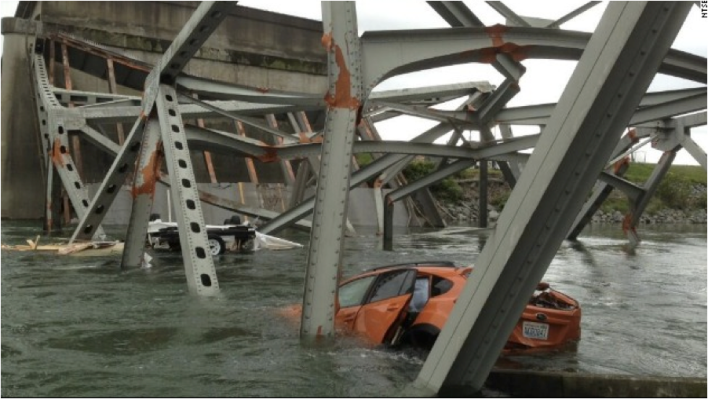Last week, a House panel envisioned some big cuts to next year’s transportation budget. TIGER and high-speed rail would get nothing, Amtrak would get slashed, and ixnay on all that green “livability” crap. (And that's practically a quote.)

The Senate Appropriations Committee voted this morning on the budget its own transportation subcommittee put together, and the end product couldn’t have been more different. Where the House allowed for $44 billion in discretionary spending, the Senate wants to budget $54 billion. To hell with the Ryan budget and to hell with the sequester, too.
Many experts see all this budgeting as an exercise in futility, however. In recent years, the House and Senate have been so unable to see eye to eye on budgeting that they've passed a series of continuing resolutions, basically freezing current budget levels in place. That looks like a likely outcome for 2014, as well. That's not the worst thing in the world, since the budget that's been frozen in place since 2011 contains funding for TIGER, sustainability grants, high-speed rail and other important discretionary programs.
Still, the appropriations process is a useful time when each chamber shows its hand. And what we learned is that the Senate is still far more willing than the House to invest in transportation infrastructure, especially infrastructure that could help shepherd the country toward a less car-dependent future.
Under the Senate plan, not only would U.S. DOT award the full $474 million for the fifth round of TIGER grants (the House would take away half of that), another $550 million would be allotted for round six. (Once overhead is taken out, that would probably mean about $520 million for grants.)
The Senate’s been lukewarm on high-speed rail lately, refusing to zero out the program like the House but also not throwing its full support behind the president’s vision of giving 80 percent of Americans access to HSR within 25 years (though even Obama doesn’t mention that goal anymore). The subcommittee allocated $100 million for what it’s now calling high-performance passenger rail grants. With people like Anderson Cooper bellyaching when sound, effective rail grants still don’t bring speeds above 110 mph, it probably wasn’t a bad idea to change the rhetoric from "speed" to "performance." Still, the Senate’s allocation pales in comparison to the president’s $40 billion budget request for high-speed rail over five years.
The Senate bill also doesn’t appear to shift rail spending from the discretionary column to the mandatory column, as the president’s proposal does.
Though the Senate's $1.45 billion for Amtrak doesn’t come close to Obama’s proposed $2.7 billion, Amtrak CEO Joe Boardman called the Senate number “realistic” and “workable.” It’s certainly a whole lot better than the $950 million the House budget gives Amtrak.
Another Obama initiative the Senate doesn't fall into step is the president’s push for a $50 billion fix-it-first infrastructure program. President Obama didn’t put that in the main part of the transportation budget either, so it could end up in a different Senate bill, but if it's going to happen for 2014, this appropriation would have been an excellent place to make it happen. So far, the infrastructure plan hasn't been introduced in either chamber as a standalone bill.
More due to the Skagit River bridge collapse than to pressure from Obama, the Senate does include half a billion dollars for “Bridges in Critical Condition,” a fix-it-first program for deficient bridges. It helps correct one of the flaws in MAP-21, which left half the country's bridges without a dedicated federal funding stream for maintenance and repair. The “BRICC” program is specifically for fixing those bridges that got left behind by MAP-21. The money would be awarded on a competitive basis by U.S. DOT.
Transit also gets a decent shake from the Senate, with $1.943 billion for New Starts, instead of the $1.82 billion in the House bill. And the FTA would finally get a little bit of money – “at least $5 million” – to fund its new transit safety oversight responsibility.
One of the programs gored in the House appropriations bill – HUD’s Community Development Block Grants program – would flourish under the Senate bill, which doubles the stingy $1.6 billion the House offered and even adds $350 million more than the president proposed.
And those “green,” “livability” programs the House so expressly refused to fund get a better deal from the Senate bill, too. HUD’s Choice Neighborhoods program, which helps link public housing with access to education, transportation, and jobs, gets more than double its 2013 funding. And Integrated Planning and Investment Grants – formerly known as Regional Planning and Community Challenge grants – get $75 million, which is $75 million more than the House offered.





